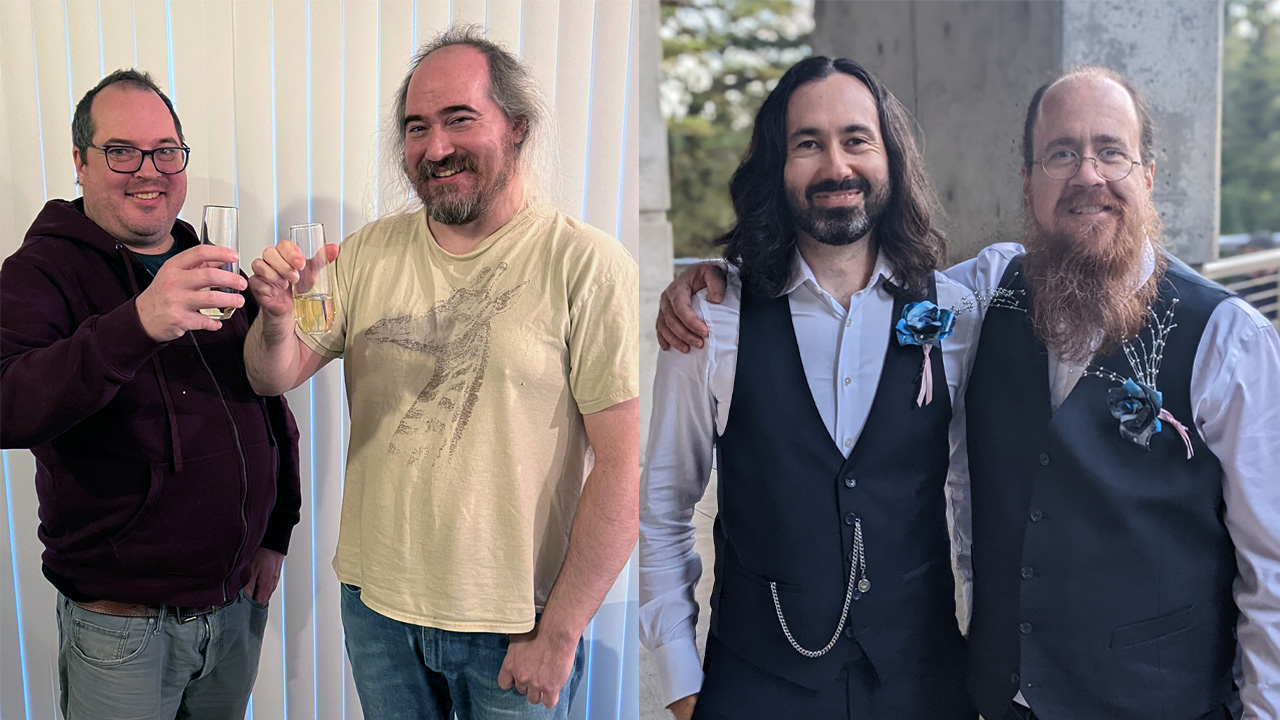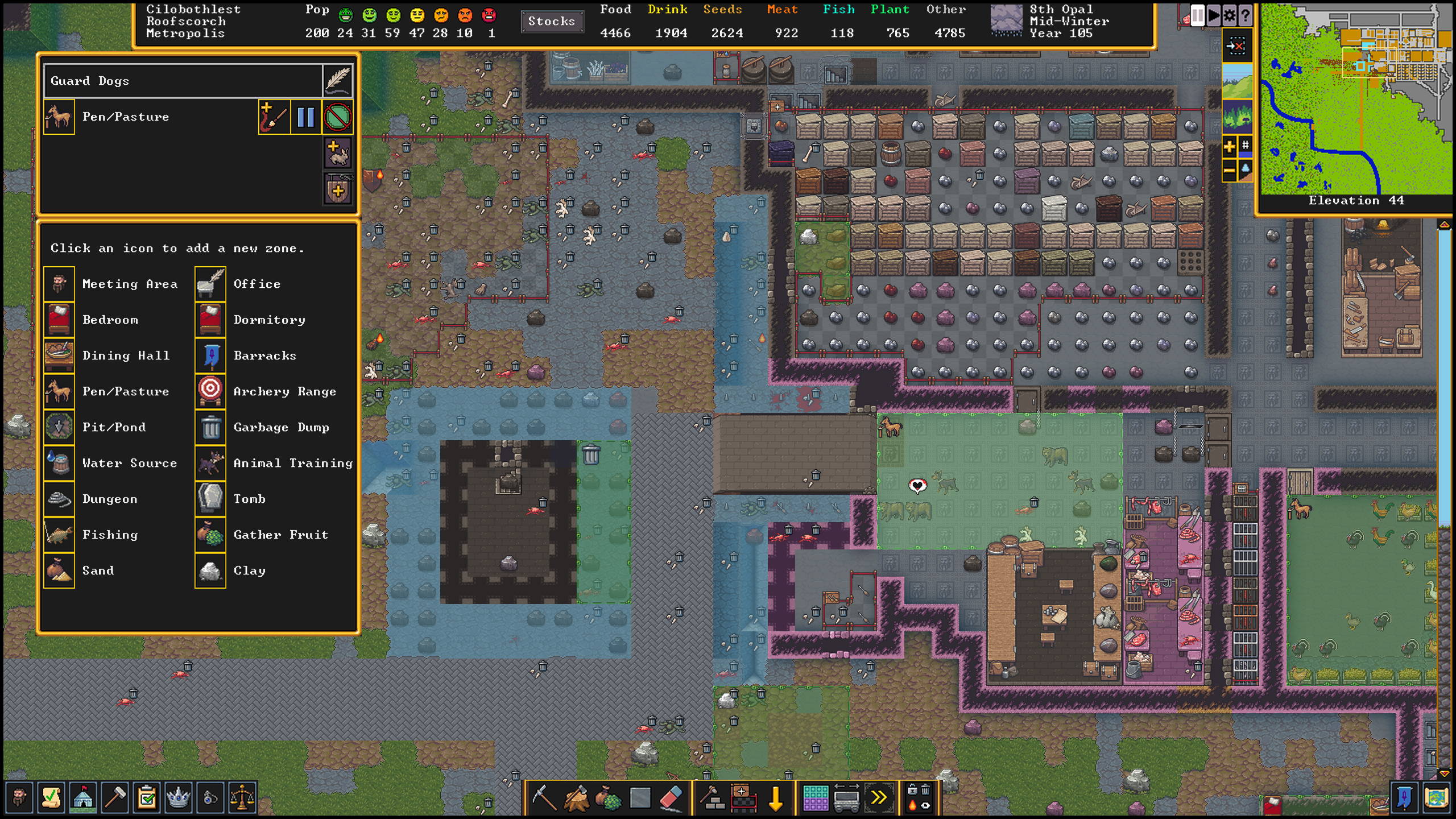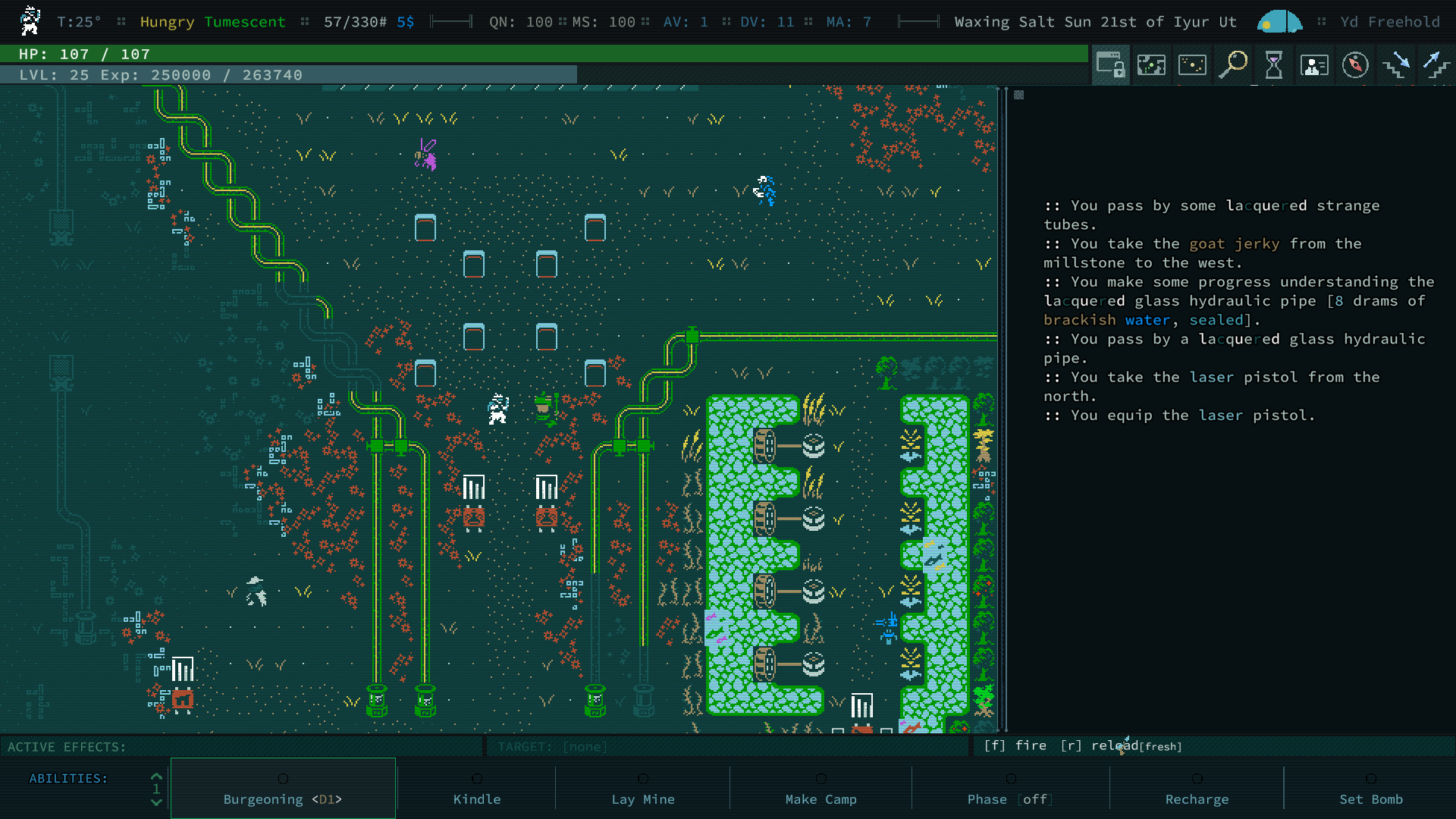
Dwarf Fortress is the kind of deeply simulated videogame where a cat can wander into a tavern, step in booze, get drunk by licking its paws and then vomit booze-puke all over the floor. Caves of Qud is the kind of deeply simulated videogame where you can use a can of "spray-a-brain" to turn an inanimate object like a wall sentient, at which point it can move, talk, fight, and become your companion if you're able to beguile it.
RSS Feed| Apple Podcasts| Spotify| Direct download
Our interviewees, from left to right:
Zach Adams: Co-founder of Bay12Games, writer & designer of Dwarf Fortress.
Tarn Adams: Co-founder of Bay12Games, designer & programmer of Dwarf Fortress.
Jason Grinblat: Co-founder of Freehold Games, writer & designer of Caves of Qud.
Brian Bucklew: Co-founder of Freehold Games, designer & programmer of Caves of Qud.
The point is: The developers behind these two games are very much kindred spirits. They're also friends, which comes through in the casual but enthusiastic conversation they had together in a recent PC Gamer roundtable.
Tarn and Zach Adams have been developing Dwarf Fortress for some 20 years, while Jason Grinblat and Brian Bucklew have been working on Caves of Qud since 2007. Both pairs have dedicated themselves to building games that deliver emergent narrative moments, experiences for players that go beyond what they ever deliberately planned themselves.
To start off our roundtable, I asked the pairs to introduce each other's games, rather than their own.

"I've definitely tweeted before that Dwarf Fortress is one of the most important games of all time," Jason Grinblat said. "There was no constraint on it other than Tarn and Zach's creative vision. It has such a specific vision, and such a simple concept, that you're running a colony of dwarves in a Tolkien-esque world, and we're going to have all these interlocking systems, and it's going to produce all of these emerging moments that cascade into these beautiful stories. If you're trying to make a game that's doing that at all, all arrows ended up pointing to Dwarf Fortress."
"There are 100 games that tried to do that, and only Dwarf Fortress succeeds," added Brian Bucklew.

"I ran into Caves of Qud—I believe on our forum, and I was fascinated from the beginning by it," Tarn Adams said. "I watched it grow into perhaps the best roguelike game ever made... it's playful in so many spaces. You've got this kind of book generator that gives you gibberish that fits the game world still somehow, which is amazing. You've got all kinds of experimental map generation. You have a cooking system, a reputation system, and a conversation system that actually work. This is unheard of, basically. It all comes together in a way that Dwarf Fortress does not."
Over the course of an hour, the four developers talked about:
- How they each tackle simulating their game worlds
- Making procedural generation actually produce meaningful stories
- Being surprised by what their own games could do
- Their thoughts on current AI tools like ChatGPT, and how they differ from their own procedural generation systems
- The Sims
If you like this sort of deep dive into game development, make sure to check out our recent RPG roundtable with five veteran developers, who've worked on Dragon Age, The Witcher 3, Fallout: New Vegas and more.







